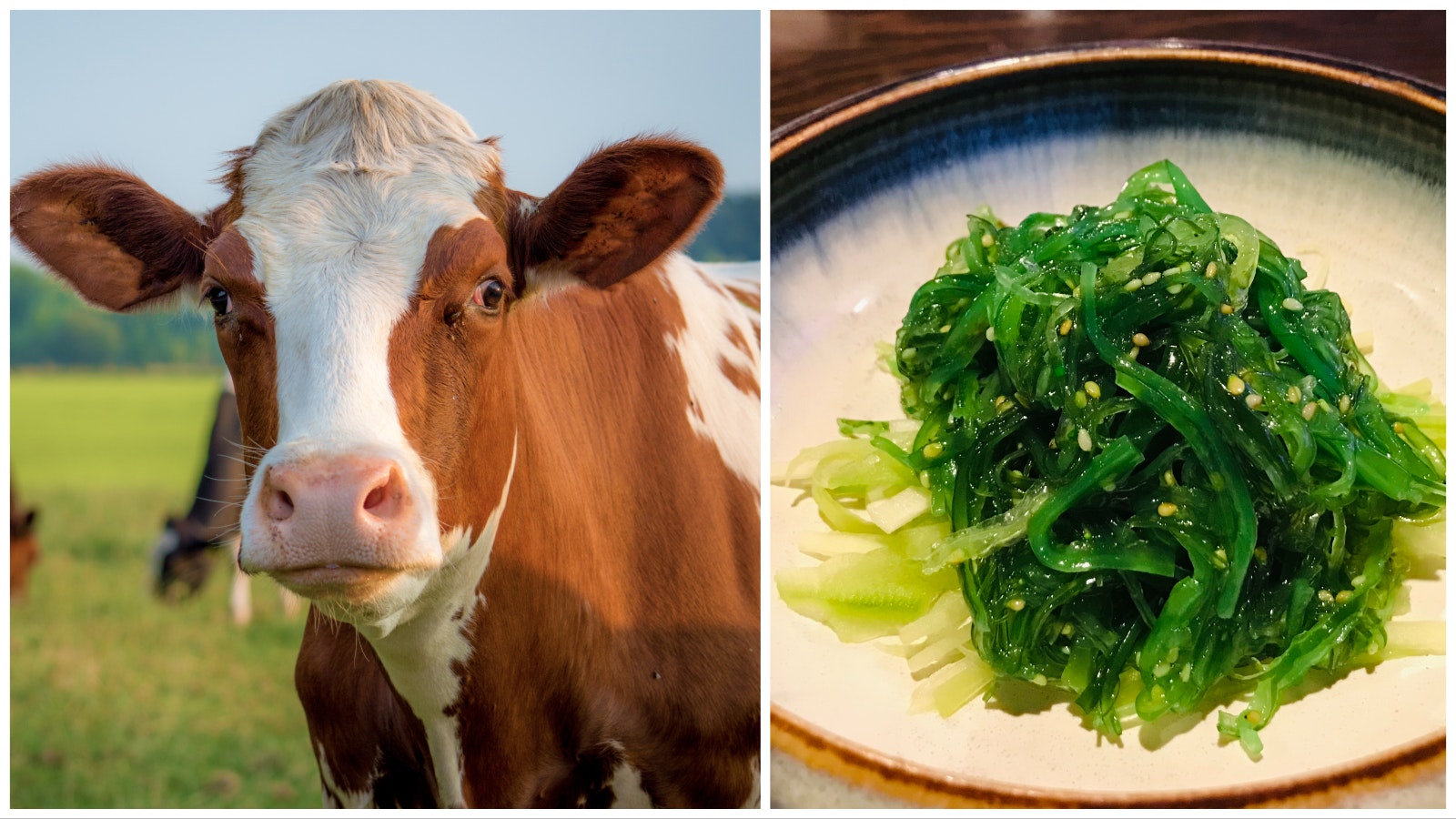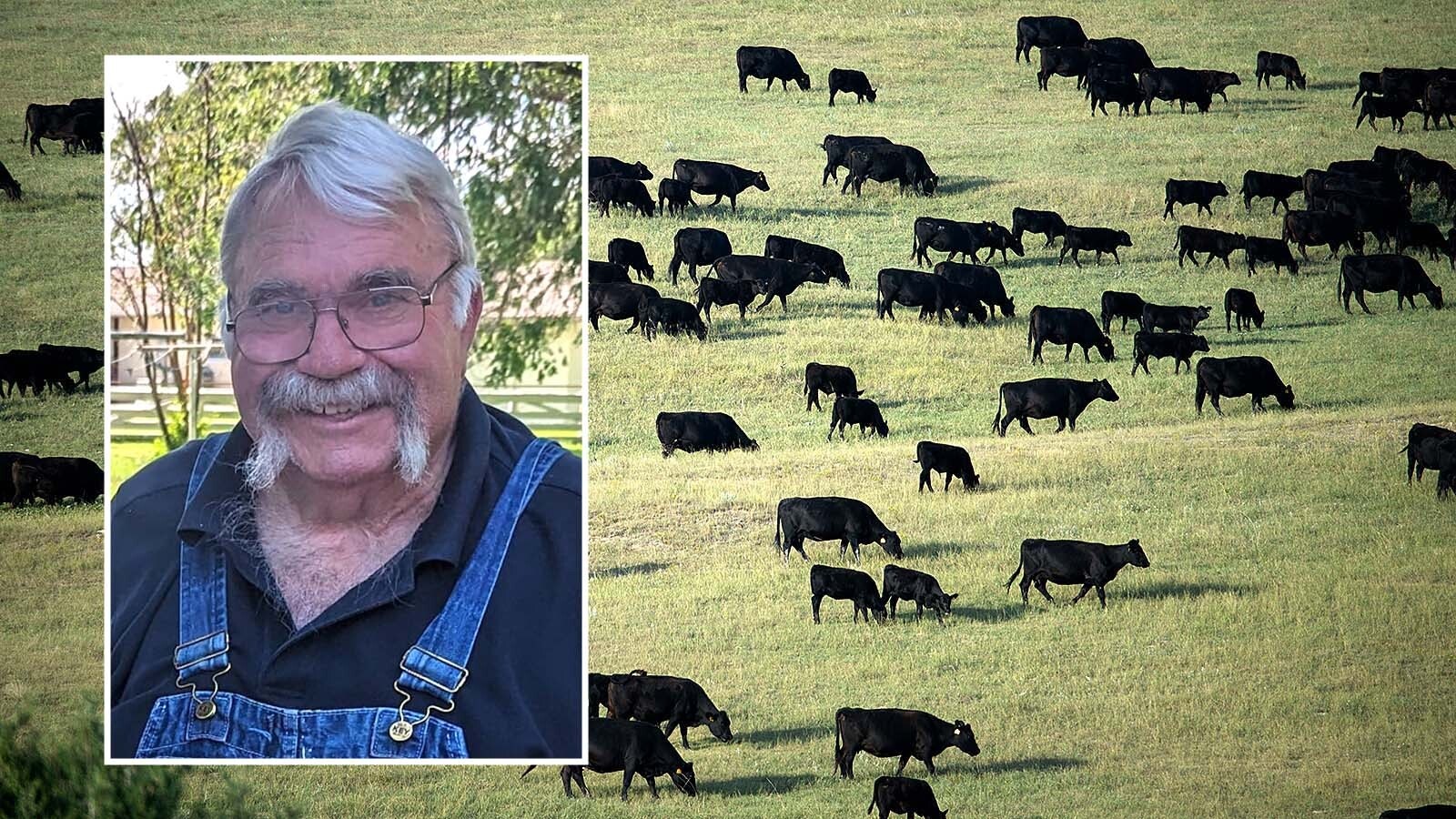A group of billionaires are funding a program to reduce the methane from cow burps. Microsoft founder Bill Gates, Amazon Executive Chairman Jeff Bezos, and Chinese business magnate Jack Ma are among the investors providing $12 million to an Australian company, Rumin8, that is aiming to feed a seaweed supplement to cows to reduce their emission levels.
Experts in Wyoming’s cattle industry are a bit skeptical of its potential in the Cowboy State. Brett Moline, director of public and governmental affairs for the Wyoming Farm Bureau Federation, told Cowboy State Daily that 300 million years ago, when the area was covered in a sea, seaweed-based feed might have gone over better.
“Ever since those seas dried up, our seaweed production has just gone to hell,” Moline said.
Decarbonize The Cow
While it’s been widely reported that the gas coming out the other end of the cow is the main source of methane, it’s actually the animal’s belching that produces most, which is the result of their digestive process.
Cows have four chambers in their stomach, and that first section, the rumen, is like a little methane factory. The typical cow can belch 220 pounds of methane per year. That’s roughly the equivalent greenhouse gas emissions that would be produced during a road trip in a Ford Focus from Los Angeles, California, to Chicago, Illinois.
Rumin8’s mission is to “decarbonize 100 million cattle by 2030.” The company is developing a variety of supplements that ranchers can feed their cows to lower their methane output. According to the company’s website, their patented technology replicates nature’s anti-methanogienic compound which turns it into scalable and highly effective supplements.
Biggest Concern
Moline explained that, while cattle producers are concerned about the environment, they also have businesses to run.
“I don’t know of anybody in Wyoming that’s doing a lot of work to reduce methane. Our biggest concern is cost of production,” Moline said.
Scott George, co-owner of George Farms on Heart Mountain in northwest Wyoming, told Cowboy State Daily the major ingredients they feed their cattle are corn silage and alfalfa hay. Corn silage is a dry corn used in animal feed. Minor ingredients include dried distiller grains, which is a byproduct from ethanol plants. They also use byproducts from canola oil production and byproduct wheat products from bakeries.
Landfill Diversion
George said the main purpose behind the feed is productivity. He said, as much as cows are seen as harmful to the environment, these feed products aren’t fit for human consumption or any other purpose. They’d ultimately be wasted if the cattle weren’t munching on them.
And cattle producers and dairy farmers often use what feed products are closest to their operations. Idaho ranchers will use potato peels. Ranchers in Hawaii use pineapple rinds.
“If the cows didn’t eat this, these catalysts, they would end up in a landfill, where they would produce considerably more methane,” George said.
George said that if cows were to be fed seaweed, it would need to be shipped from where it’s produced, which obviously isn’t near Wyoming, to where it’s used. The emissions from the shipping would likely negate any savings from the feed.
Net Benefits
By using feed stocks from nearby sources, ranchers cut down on those emissions. George Farms uses canola because they grow canola in Montana and North Dakota.
George said he knows of an organic farmer who doesn’t use commercial fertilizer. He uses fish oil that’s extracted from fish that are caught on diesel-powered boats on the Pacific Ocean. They process the fish in factories running on electricity that likely comes mostly from coal and natural gas. Finally, they put the fish oil in 55-gallon plastic barrels, which are made from crude oil, load them on semis powered by diesel, and haul them 1,000 miles to Wyoming, where the fish oil is applied with sprayer planes.
“They’re saying they’re better for the environment, but I wonder where the net [benefit] is,” George said.
Practical Considerations
George said there’s nothing wrong with growing organic produce, but environmental benefits aren’t always easy to pencil out.
“I think that sometimes people get caught up in the math, but it doesn’t economically or sustainably come out that way,” George said.
Worldwide, livestock production accounts for about 14.5% of all greenhouse gas emissions, and in the U.S., it’s about 2.5% of the nation’s total emissions.
Gates’ interest in Rumin8 might stem from a practical consideration with regard to addressing climate change by changing people’s diets.
Gates told an Indian media company this month that he wouldn’t count on all Americans or all Indians to go vegetarian.
So instead of changing human diets, Gates may be betting on changing cattle diets.





